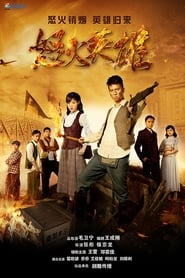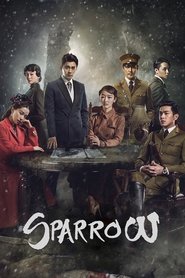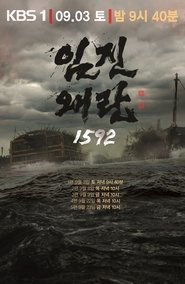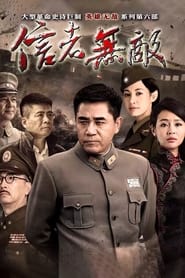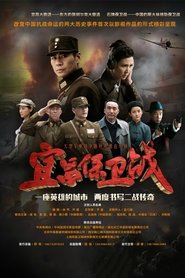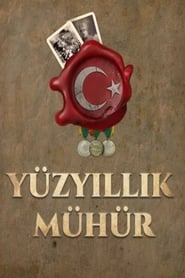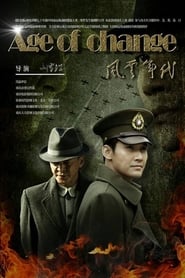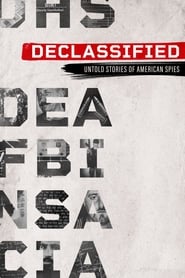New War Politics TV Series - Page 53
-
怒火英雄
2016
怒火英雄
2016
-
Sparrow
2016
Sparrow
2016
star 6This drama is set during the revolutionary time in Shanghai, based on a novel of the same name of Hai Fei. During the republican revolution, Chen Shen is a secret agent under Special Operations Executive Director Bi Zhongliang, among the agents called “sparrow” (similar to the program “zero” in Japan) -
我的老爸是卧底
2016
我的老爸是卧底
2016
-
Imjin War 1592
2016
-
Invincible Belief
2016
Invincible Belief
2016
-
Scarlet Heart: Ryeo
2016
Scarlet Heart: Ryeo
2016
star 8.5A story of a 25-year-old Go Hajin who is transported back in time to the Goryeo Dynasty. She then wakes up in the body of Lady Hae Soo and finds herself amongst the ruling princes of the Wang Family. -
Love in the Moonlight
2016
star 6.9A young Joseon woman who's lived her whole life as a man ends up as a eunuch in the royal palace, where she begins to bond with the crown prince. -
The Governor
2016
The Governor
2016
star 6When sudden tragedy forces a deputy to step into the role of governor, she faces grueling political and personal tests in order to lead her state. -
The Last Gateway of the Nation
2016
It tells the story of the war of resistance that occurred in Yichang from 1938 to 1943. (Source: DramaWiki) -
Ice Fantasy
2016
Ice Fantasy
2016
star 5.9A century after the war between the Ice and Fire Tribes, Prince Ka Suo of the Ice Tribe becomes king, searching for his missing lover and brother. He uncovers a dark conspiracy within his tribe, unaware that his brother, now the Fire Prince with no memory of his past, is leading the Fire Tribe. As tensions rise, the brothers are forced into a new conflict, this time against each other. -
1914-1945: They Made History
2016
star 7Between 1914 and 1945, two major conflicts engulfed the planet. Among the combatants of the First World War, eight men would play a decisive role in the next one. -
Singing All Along
2016
-
The Seven Warring States Fan
2016
The sudden technological civilization has shrouded the fog of war over the entire Kyushu continent, and the wonderful combination of magic and technology has become the kingly way to rule the world in the hearts of kings. However, the ancient talismans that have disappeared since ancient times, their mysterious power quietly controls the fate of the entire continent in the dark side of the dust of history. -
Yüzyıllık Mühür
2016
-
Age of Change
2016
Age of Change
2016
-
铁血军歌
2016
铁血军歌
2016
-
Declassified: Untold Stories of American Spies
2016
star 6.3Explore the true stories of America's covert operations told firsthand by the agents who lived it, while getting unprecedented access to the riveting and secret world of espionage. -
The Fatal Mission
2016
The Fatal Mission
2016
star 8.3In 1942, the Chinese government received intelligence that the Japanese may be developing a dangerous biological weapon in a remote part of Burma.The Chinese Expeditionary Force, a secret specialized squad, is dispatched to the remote region to try to stop the Japanese actions. Led by the tough female commander, the highly trained soldiers can't seem to get along.
 Netflix
Netflix
 Amazon Prime Video
Amazon Prime Video
 Apple iTunes
Apple iTunes
 Apple TV Plus
Apple TV Plus
 Disney Plus
Disney Plus
 Google Play Movies
Google Play Movies
 Paramount Plus
Paramount Plus
 Hulu
Hulu
 HBO Max
HBO Max
 YouTube
YouTube
 fuboTV
fuboTV
 Peacock
Peacock
 Peacock Premium
Peacock Premium
 Amazon Video
Amazon Video
 The Roku Channel
The Roku Channel
 AMC+
AMC+
 Kocowa
Kocowa
 Hoopla
Hoopla
 The CW
The CW
 Vudu
Vudu
 Starz
Starz
 Showtime
Showtime
 PBS
PBS
 Pantaflix
Pantaflix
 FXNow
FXNow
 Tubi TV
Tubi TV
 Kanopy
Kanopy
 Comedy Central
Comedy Central
 Crunchyroll
Crunchyroll
 Microsoft Store
Microsoft Store
 Redbox
Redbox
 Sun Nxt
Sun Nxt
 ABC
ABC
 DIRECTV
DIRECTV
 Crackle
Crackle
 Fandor
Fandor
 Plex
Plex
